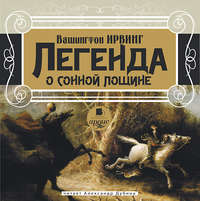The Student's Life of Washington; Condensed from the Larger Work of Washington Irving
 полная версия
полная версияThe Student's Life of Washington; Condensed from the Larger Work of Washington Irving
Язык: Английский
Год издания: 2017
Добавлена:
Настройки чтения
Размер шрифта
Высота строк
Поля









